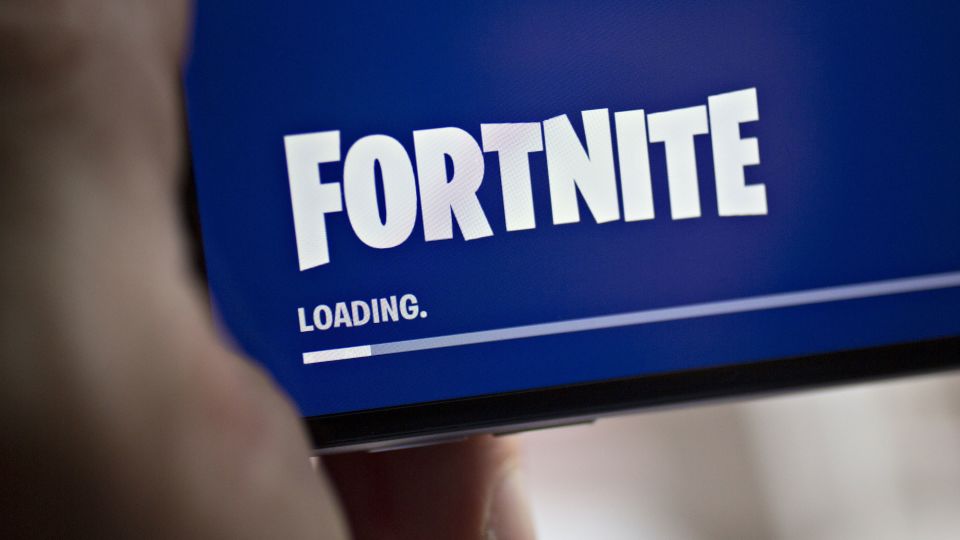Hold onto your pickaxes, Fortnite fam! The battle royale juggernaut is back on iOS devices in the US after a nearly five-year hiatus. Yes, you read that right. Epic Games and Apple have finally settled their infamous legal battle, paving the way for Fortnite’s triumphant return to the App Store. Get ready for a nostalgia trip as we dive into the details of this monumental comeback, exploring the impact on players, the future of mobile gaming, and what this victory means for Epic’s fight against platform monopolies. Let’s get building!
The Implications for the Gaming Landscape

The recent decision by Apple to reinstate Fortnite on its App Store has sent shockwaves throughout the gaming industry, sparking widespread debate about the implications of this move. Epic Games’ wildly popular multiplayer shooter game was available again on Apple’s app store in the US on Tuesday, capping a ban of nearly five years and marking a major win for the video game company.

A Win for Gamers?: Lower Prices, More Choice, and a Shift in Power
One of the most significant implications of this decision is the potential for lower prices and increased competition among app stores. With Fortnite available on multiple platforms, including the Epic Games Store and AltStore in the European Union, gamers may see more affordable options for purchasing in-game items and subscriptions. This shift in power dynamics could also lead to a more level playing field, allowing smaller developers to compete with larger companies.
Furthermore, the reinstatement of Fortnite on Apple’s App Store could lead to a broader shift in the way apps are distributed and monetized. With the rise of cloud gaming and subscription-based models, the traditional app store model may become increasingly obsolete. This could lead to a more fluid and dynamic gaming landscape, with players able to access a wider range of content and services without the need for separate apps or subscriptions.
A Boon for Developers?: Breaking Free from App Store Control and Expanding Revenue Streams
The Fortnite saga has also highlighted the struggles faced by developers in the app store ecosystem. By challenging Apple’s app store policies and seeking to circumvent the 30% revenue share, Epic Games has sparked a debate about the role of app stores in the gaming industry. With the reinstatement of Fortnite, developers may see an opportunity to break free from the constraints of traditional app stores and explore new revenue streams.
One potential outcome of this shift is the emergence of new business models, such as revenue-sharing agreements or subscription-based services. This could enable developers to retain more of their revenue and invest in more innovative and engaging content. Additionally, the removal of app store restrictions could lead to a proliferation of new and innovative apps, as developers are no longer beholden to the constraints of traditional app store policies.
However, it is also worth noting that this shift may also create new challenges for developers, such as navigating complex regulatory environments and ensuring compliance with multiple app store policies. Furthermore, the lack of a unified app store platform could lead to fragmentation and confusion among players, making it more difficult for developers to reach their target audience.
Apple’s Response: How Will the Tech Giant Adapt to This New Reality?
Apple’s response to the Fortnite saga has been to emphasize the importance of its app store policies and the need for developers to comply with its rules. In a statement, Apple said that it would continue to enforce its app store policies and would not tolerate attempts to circumvent its revenue sharing model.
However, the reinstatement of Fortnite suggests that Apple may be willing to adapt its policies in response to pressure from regulators and developers. This could lead to a more nuanced and flexible approach to app store policies, with a greater emphasis on innovation and competition. Additionally, Apple may need to re-evaluate its revenue sharing model, which has been criticized for being too high and restrictive.
Ultimately, the outcome of the Fortnite saga will depend on a range of factors, including the actions of regulators, developers, and players. As the gaming industry continues to evolve, it is likely that we will see a more complex and dynamic app store ecosystem, with multiple platforms and business models competing for market share.
Looking Ahead: The Future of Mobile Gaming and App Distribution
The Fortnite saga has sparked a wider debate about the future of mobile gaming and app distribution. With the rise of cloud gaming and subscription-based models, the traditional app store model may become increasingly obsolete. This could lead to a more fluid and dynamic gaming landscape, with players able to access a wider range of content and services without the need for separate apps or subscriptions.
One potential outcome of this shift is the emergence of new app store platforms, such as the Epic Games Store or the Google Play Store. These platforms could offer more flexible and innovative business models, such as revenue-sharing agreements or subscription-based services. This could enable developers to retain more of their revenue and invest in more innovative and engaging content.
However, it is also worth noting that this shift may also create new challenges for players, such as navigating complex regulatory environments and ensuring compliance with multiple app store policies. Furthermore, the lack of a unified app store platform could lead to fragmentation and confusion among players, making it more difficult for developers to reach their target audience.
Will Epic’s Victory Spark a Revolution in App Stores?
The Fortnite saga has sparked a wider debate about the role of app stores in the gaming industry. With the reinstatement of Fortnite, Epic Games has demonstrated its willingness to challenge the status quo and push for more innovative and flexible business models. This could lead to a revolution in app stores, with multiple platforms and business models competing for market share.
However, it is also worth noting that this shift may also create new challenges for developers, such as navigating complex regulatory environments and ensuring compliance with multiple app store policies. Furthermore, the lack of a unified app store platform could lead to fragmentation and confusion among players, making it more difficult for developers to reach their target audience.
Ultimately, the outcome of the Fortnite saga will depend on a range of factors, including the actions of regulators, developers, and players. As the gaming industry continues to evolve, it is likely that we will see a more complex and dynamic app store ecosystem, with multiple platforms and business models competing for market share.
The Role of Antitrust Laws: Shaping the Future of Big Tech and Consumer Rights
The Fortnite saga has also highlighted the role of antitrust laws in shaping the future of big tech and consumer rights. With the rise of cloud gaming and subscription-based models, the traditional app store model may become increasingly obsolete. This could lead to a more fluid and dynamic gaming landscape, with players able to access a wider range of content and services without the need for separate apps or subscriptions.
One potential outcome of this shift is the emergence of new app store platforms, such as the Epic Games Store or the Google Play Store. These platforms could offer more flexible and innovative business models, such as revenue-sharing agreements or subscription-based services. This could enable developers to retain more of their revenue and invest in more innovative and engaging content.
However, it is also worth noting that this shift may also create new challenges for players, such as navigating complex regulatory environments and ensuring compliance with multiple app store policies. Furthermore, the lack of a unified app store platform could lead to fragmentation and confusion among players, making it more difficult for developers to reach their target audience.
The Potential for Innovation: New Models of App Distribution and the Evolving Gaming Experience
The Fortnite saga has sparked a wider debate about the potential for innovation in app distribution and the evolving gaming experience. With the rise of cloud gaming and subscription-based models, the traditional app store model may become increasingly obsolete. This could lead to a more fluid and dynamic gaming landscape, with players able to access a wider range of content and services without the need for separate apps or subscriptions.
One potential outcome of this shift is the emergence of new app store platforms, such as the Epic Games Store or the Google Play Store. These platforms could offer more flexible and innovative business models, such as revenue-sharing agreements or subscription-based services. This could enable developers to retain more of their revenue and invest in more innovative and engaging content.
Furthermore, the lack of a unified app store platform could lead to a proliferation of new and innovative apps, as developers are no longer beholden to the constraints of traditional app store policies. This could lead to a more diverse and dynamic gaming landscape, with players able to access a wider range of content and services.
Conclusion
The dust has settled, and the battle royale is back on. After nearly five years of legal wrangling and a tense standoff, Epic Games’ Fortnite has finally returned to the Apple App Store in the US. This landmark decision marks a significant victory for both Epic and gamers eager to access the game on their iOS devices. As CNN reports, the resolution stems from a recent court ruling that sides with Epic on certain antitrust claims against Apple. The agreement, while still shrouded in some secrecy, signifies a potential shift in the power dynamics within the mobile gaming ecosystem.
This event isn’t just about one game; it’s about the future of app distribution and competition on mobile platforms. Fortnite’s return sets a precedent, potentially paving the way for other developers to challenge Apple’s stringent control over the App Store. It raises crucial questions about the balance between platform control and developer freedom, and the ultimate impact on consumer choice and pricing. The next chapter in this saga will be fascinating to watch, as we see how this new landscape unfolds and whether it truly ushers in a more equitable and open future for mobile gaming.
The return of Fortnite to the Apple App Store serves as a clear reminder: the fight for a fairer and more competitive digital landscape is far from over. This is a victory for gamers, developers, and anyone who believes in the power of innovation and choice in the digital world.